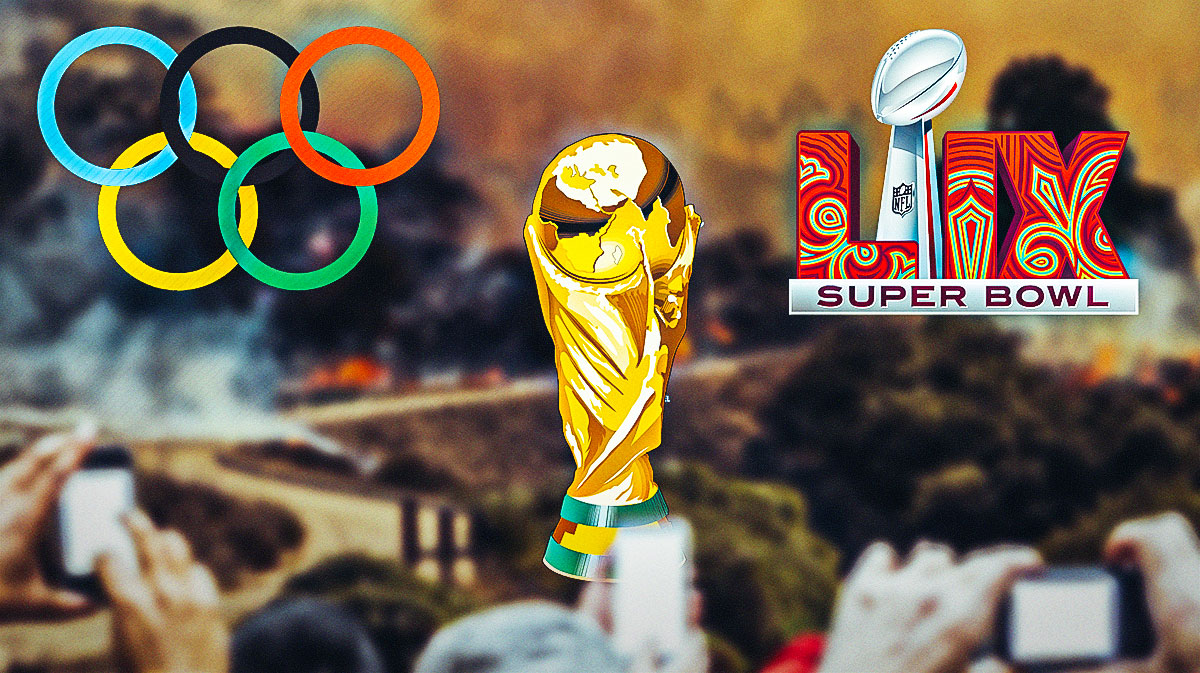How the fires in Los Angeles will affect preparations for the World Cup, the Super Bowl and the Olympics

The City of Los Angeles and the State of California have their hands full right now, focusing on extinguishing the wildfires in Los Angeles, assisting thousands of displaced evacuees, overseeing a major commercial and residential rebuilding project for lost structures, and combating misinformation and bizarre conspiracy theories surrounding the wildfires. promote mostly the far right, the newly elected president and his best friend Tesla.
It is understandable then that the question arises whether LA still can – or should – host the World Cup, Super Bowl and the Olympic Games in the next three years. And the answer, like many things about these fires, is complicated.
The LA Times published an in-depth article on Wednesday that looks at the various factors that go into the tough upcoming decisions for every major sporting event.
According to the article, the president of the organizing committee of the LA28 Olympic Games, Casey Wasserman, is not upset. Wasserman said in a statement“The strength of our communities and our unity in difficult times make this city extraordinary, and when Los Angeles welcomes the world in 2028, our spirit will shine brighter than ever before.”
The Olympics are the largest undertaking of the three events — and by far the most expensive, with an estimated cost of $7 billion.
It is also the furthest into the future of the three sporting events, as it will be for the 2028 Summer Games. The World Cup is scheduled to be hosted by LA in 2026, and the Super Bowl is scheduled for February 2027.
All present different logistical challenges, despite the fact that none of the area’s major sports arenas that will be used for these events — SoFi Stadium, the Intuit Dome and USC’s Coliseum — were damaged by the fires.
The only sports facilities affected by fires related to these events are: Riviera Country Club, which is proposed to host the Olympic golf events and is located in the Palisades fire evacuation zone; and UCLA, which is located just outside the warning boundary of the fire area, and would serve as the Olympic Village for athletes to stay for the games.
Related newsThe article continues below
However, the main issue of concern if LA still hosts the event is not so much the sports facilities themselves, but rather the amount of resources required for operations of this magnitude.
As Jules Boikoff, a sports policy expert at Oregon Pacific University, pointed out, “Any city preparing for three major events has its hands full,” adding, “If these good people in government are working on the Olympics and the Super Bowl, they they are not working on other issues.”
Those other issues at issue mostly relate to the massive redevelopment project ahead of us for Pacific Palisades and other large areas of the city. The main concern is whether construction can take place on both fronts simultaneously, or whether all resources should be devoted to rebuilding efforts ahead of the World Cup, Super Bowl and Olympics.
There is precedent for changing Olympic host cities after a natural disaster, but LA has also been a favorite in the past.
Sports are one of the few remaining institutions that can bring people together on an epic scale — and there’s certainly something to be said for boosting morale and hope (not to mention the economic boost expected from all visitors to the city from these events).
But as Los Angelenos consider the damage done to their fair city and focus on the immediate need for disaster relief and a proper rebuilding plan, they must also keep an eye on the future with the World Cup, the Super Bowl and the Olympics are all on the horizon.
2025-01-16 00:10:00







